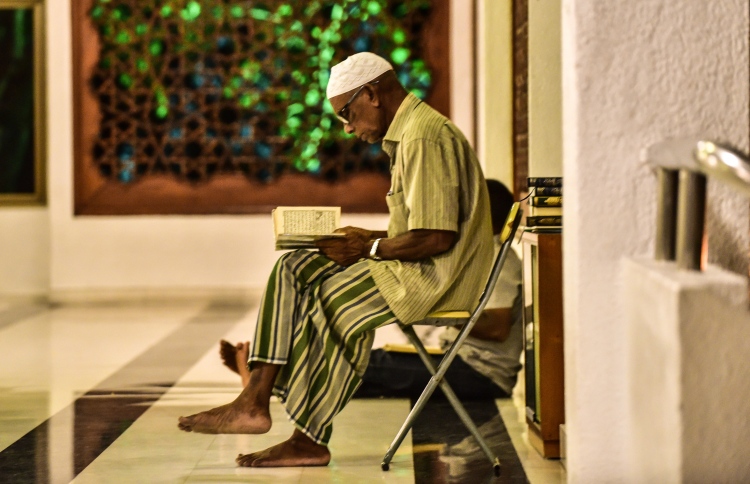Malé, Maldives – Health Protection Agency (HPA), has sought the opinions of Islamic Scholars regarding the suspension of prayer gatherings amidst rise of Covid-19 cases in Greater Malé Area.
The Ministry of Islamic Affairs has reportedly, at HPA’s request, discussed with various local scholars on the matter. The scholars were generally against mosque closure, and brought a number of points defending their decision to the table.
The scholars stated that citizens are gathered on the streets, at cafés and at various sports facilities for far longer than at mosques, adding that further closures would result in citizen’s questioning them about this decision.
They added that such a decision would instill hatred for the government in members of the public, and that the government would be accused of obstructing islamic affairs.
“This would be a great setback for the government and for us”
Islamic scholars participating in the discussion
Another point raised by the scholars was that, a number of citizens cannot pray at home due to space issues in Malé and have no other option but to go to the nearest mosque, even if mosques are ‘closed’ officially.
The scholars advised that, mosques are places of extreme important for Muslims, and closures must be done as the very last option if numerous safety precautions continue to fail.
Representatives of the Ministry of Islamic Affairs have previously met with a number of imams in charge of mosques to advise on further measures imams are to take in light of the recent surge of Covid-19 cases in Maldives.
Common practices such as wearing masks and maintaining distance when entering and exiting mosque have been enforced by Islamic Ministry guidelines published after these discussions.
The guidelines also mentioned that people were to do wudu from home and should bring prayer mats from home as well as making lines starting from the front of the mosque rather than staying in different places of the mosque.
In addition to this, it was stated that people having fever, cold, coughing or lung diseases were not suppose to go to mosque and instructed those going to mosque not wait in the mosque after finishing prayer. Furthermore, people are not suppose to shake hands and used the Qur’ans placed in the mosque.
Mosques remained closed for a extended period in the greater Male’ region and all over Maldives during the initial months of the pandemic. While no mosque related clusters have been identified in the Maldives, such gatherings are far from safe, especially as a majority of mosque goers are at risk senior citizens.





